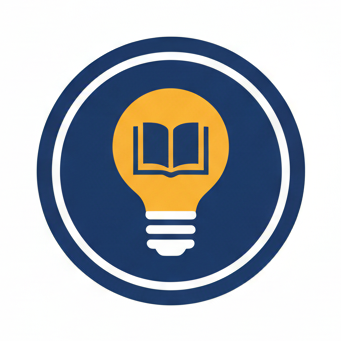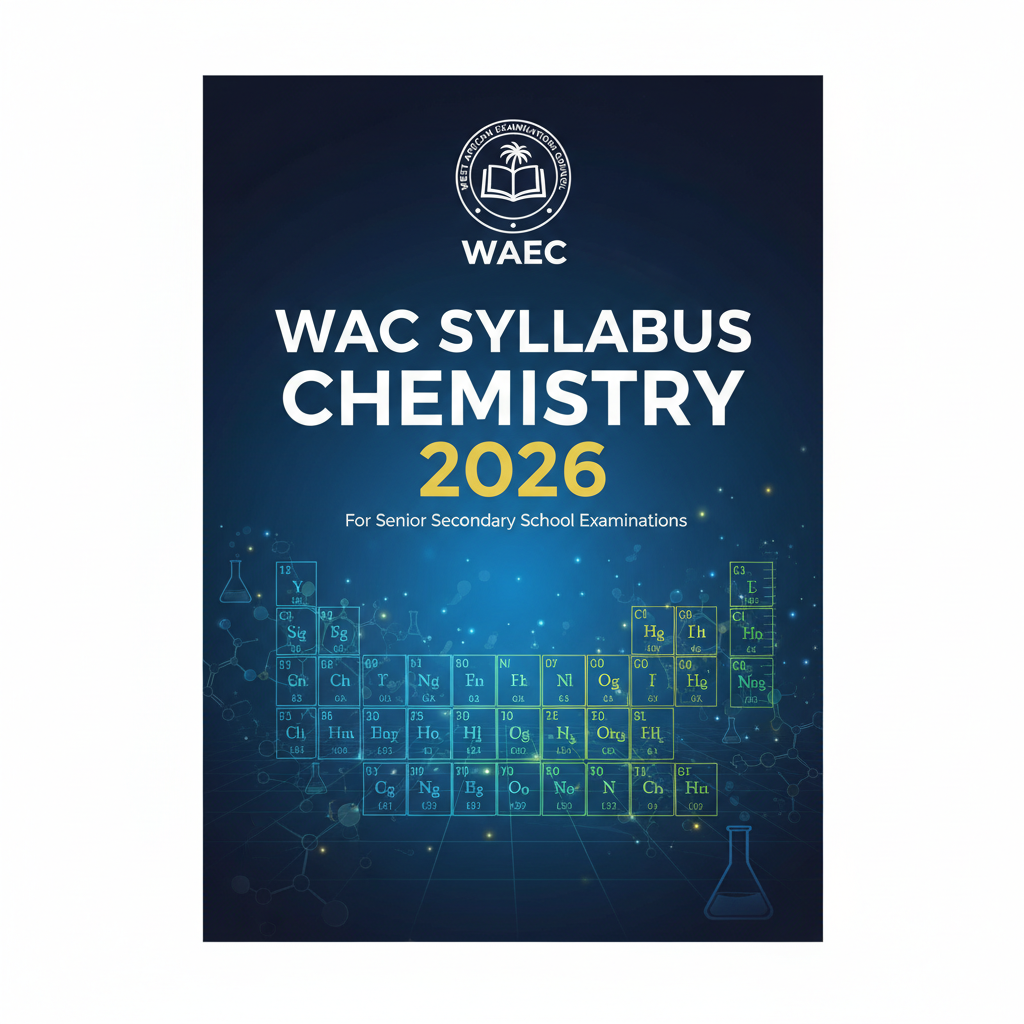If you’re planning to write the 2026 WAEC Chemistry exam, one of the smartest things you can do right now is to study with the official syllabus. Think of the syllabus as a map, it tells you exactly what WAEC expects you to know, the areas you should focus on, and the topics that always show up in the exam.
This guide breaks down the WAEC Chemistry Syllabus for 2026 in clear, simple English so you can understand it easily, plan your reading, and prepare with confidence.
Why the WAEC Chemistry Syllabus Matters
Instead of jumping from topic to topic or reading random things, the syllabus helps you focus on what truly matters. It tells you:
- All the topics WAEC will set questions from
- The skills you must develop for theory, objectives, and practicals
- How the exam is structured
- What experiments and calculations you need to master
When you follow the syllabus, your reading becomes easier and more organized.
WAEC Chemistry Syllabus for 2026
Below are the major areas you must study.
1. Basic Concepts in Chemistry
This section covers the foundation of chemistry, things like the meaning of chemistry, states of matter, chemical equations, the mole concept, and how substances combine.
If you understand this part well, many other topics become easier.
2. States of Matter
Here, you’ll learn how gases, liquids, and solids behave.
You’ll also study gas laws like Boyle’s Law and Charles’ Law, these calculations appear almost every year.
3. Atomic Structure and the Periodic Table
This includes:
- What atoms are made of
- How electrons are arranged
- Periodic trends like electronegativity and ionization energy
Questions from this topic are very common.
4. Chemical Bonding
You’ll learn how atoms join together, whether through ionic, covalent, or metallic bonds.
You’ll also study the shapes of molecules and forces like hydrogen bonding.
5. Acids, Bases, and Salts
This part teaches you about:
- Strength of acids and bases
- pH values
- Neutralization
- How salts are formed
It’s one of the easiest topics to score marks in.
6. Chemical Reactions
You’ll learn different types of reactions, how to identify oxidation and reduction, and how catalysts work.
7. Thermochemistry
This is about heat energy during reactions.
You’ll learn terms like enthalpy, heat of combustion, Hess’s Law, etc.
8. Electrochemistry
This section covers electrolysis, electrochemical cells, and Faraday’s Laws.
Private candidates should pay special attention here—WAEC loves asking these questions.
9. Organic Chemistry
You’ll explore compounds that mainly contain carbon and hydrogen, such as:
- Alkanes
- Alkenes
- Alcohols
- Acids
- Polymers
Organic chemistry is always a major part of the exam.
10. Inorganic Chemistry
Here you’ll study metals, non-metals, halogens, noble gases, and their properties.
11. Water and Air
You’ll learn:
- How air is composed
- How water is purified
- Types of water hardness
- Tests for gases like hydrogen and oxygen
12. Carbon Compounds and Petroleum
This includes crude oil, fractional distillation, fuels, and environmental effects of burning these fuels.
13. Environmental Chemistry
Topics here include air and water pollution, greenhouse effects, ozone layer issues, and how we can reduce pollution.
14. Industrial Chemistry
This covers important industrial processes like:
- Solvay Process
- Contact Process
- Haber Process
You’ll also learn how soaps and detergents are made.
WAEC Chemistry Exam Format for 2026
Paper 1 – Objective (Multiple Choice)
Fast-paced, 50 questions covering all topics.
Paper 2 – Theory
This is where you explain concepts, solve problems, and write balanced equations.
Paper 3 – Practical / Alternative to Practical
School candidates do real experiments; private candidates answer practical-based questions.


Leave a Reply